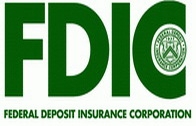Advertisement
Federal agencies propose rule to implement SAFE Act mortgage loan originator registration requirements

The Federal financial institution regulatory agencies (the Agencies) are together issuing for public comment proposed rules requiring mortgage loan originators who are employees of Agency-regulated institutions to meet the registration requirements of the Secure and Fair Enforcement for Mortgage Licensing Act of 2008 (S.A.F.E. Act).
The S.A.F.E. Act requires the Agencies to jointly develop and maintain a system for registering residential mortgage loan originators who are employees of Agency-regulated institutions, including national and State banks, savings associations, credit unions, and Farm Credit System institutions, and certain of their subsidiaries. These mortgage loan originators must be registered with the Nationwide Mortgage Licensing System and Registry (Registry), a database established by the Conference of State Bank Supervisors (CSBS) and the American Association of Residential Mortgage Regulators to support the licensing of mortgage loan originators by the States. As part of this registration process, mortgage loan originators must furnish to the Registry background information and fingerprints for a background check. The S.A.F.E. Act generally prohibits employees of an Agency-regulated institution from originating residential mortgage loans without first registering with the Registry.
The proposal, which is being issued jointly by the Office of the Comptroller of the Currency, Board of Governors of the Federal Reserve System, Federal Deposit Insurance Corporation, Office of Thrift Supervision, Farm Credit Administration, and National Credit Union Administration, establishes the registration requirements for mortgage loan originators employed by Agency-regulated institutions as well as requirements for these institutions, including the adoption of policies and procedures to ensure compliance with the S.A.F.E Act and final rule. As required by the law, the proposal also requires these mortgage loan originators to obtain a unique identifier through the Registry that will remain with that originator, regardless of changes in employment. When the system is fully operational, consumers will be able to use the unique identifiers to access employment and other background information of registered mortgage loan originators. Pursuant to the S.A.F.E. Act, the proposal further requires these mortgage loan originators to provide their unique identifiers to consumers in certain circumstances and Agency-regulated institutions to make them available to consumers.
Because modification of the Registry to accept Federal registrations involves complex technical issues, the proposed rule provides for a delay in implementation of the registration requirements until 180 days after the Registry becomes operational and available for initial federal registrations.
The Federal Register notice and proposed rule are attached. The proposal will soon be published in the Federal Register and the comment period will end 30 days thereafter.
For more information, visit www.fdic.gov.
About the author




